project aim
The CALOHEA project is aimed at contributing to the internationalization
of higher education institutions in South-East Asia through developing a
series of interrelated measures in three Key Recognition Mechanisms.
The CALOHEA project is aimed at contributing to the internationalization of higher education institutions in South-East Asia through developing a series of interrelated measures in three Key Recognition Mechanisms.
Project Details
The CALOHEA project unites thirty-one institutions across eight
countries within ASEAN and five countries within Europe. The
institutions create teams in the subject area of Civil Engineering,
Medicine and Teacher Education. Together these teams form a
Subject Area Group (SAG). The ASEAN University Network (AUN)
acts as coordinator within the region, while the University of
Groningen (RUG) is the project coordinator. Participating
institutions were carefully selected over shared values and
complementary expertise for maximum impact at institutional,
national and regional levels.
The CALOHEA project unites thirty-one institutions across eight countries within ASEAN and five countries within Europe. The institutions create teams in the subject area of Civil Engineering, Medicine and Teacher Education. Together these teams form a Subject Area Group (SAG). The ASEAN University Network (AUN)
acts as coordinator within the region, while the University of Groningen (RUG) is the project coordinator. Participating
institutions were carefully selected over shared values and complementary expertise for maximum impact at institutional,
national and regional levels.
This large-scale project addresses the issues faced by
institutions in the South-East Asia (SEA) Region. It specifically
focuses on internationalization and the 3 Key Recognition
Mechanisms (RMs):
This large-scale project addresses the issues faced by institutions in the South-East Asia (SEA) Region. It specifically focuses on internationalization and the 3 Key Recognition Mechanisms (RMs):
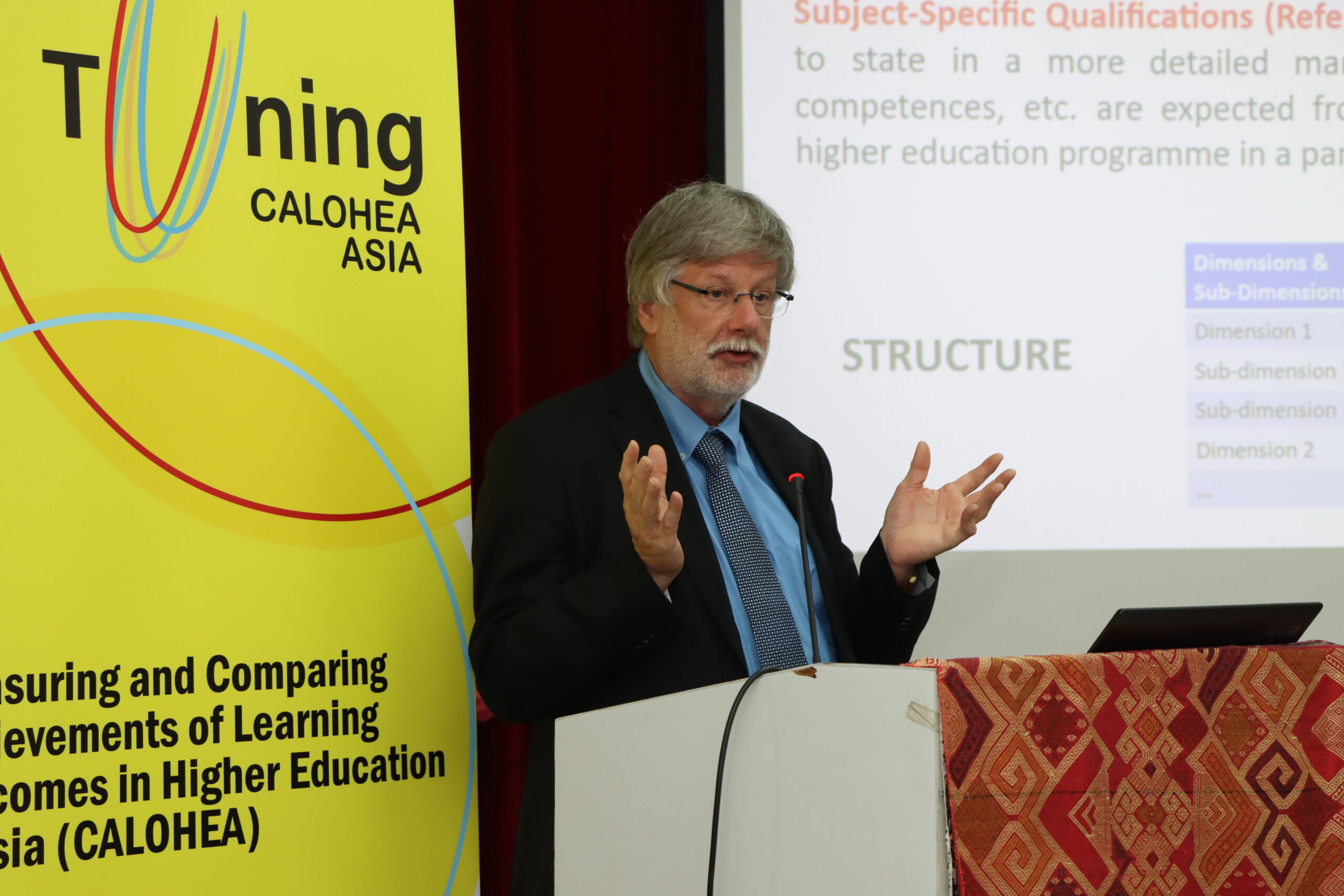
Creation and use of Regional Subject-Specific Qualifications and Assessment Reference Frameworks
to permit greater comparability of institutional degree programme profiles
Instalment of the culture of Student
Workload Measurement as an integral
part of curriculum design
implementation of Authentic Assessment
of internationally comparable Learning
Outcomes in degree programmes
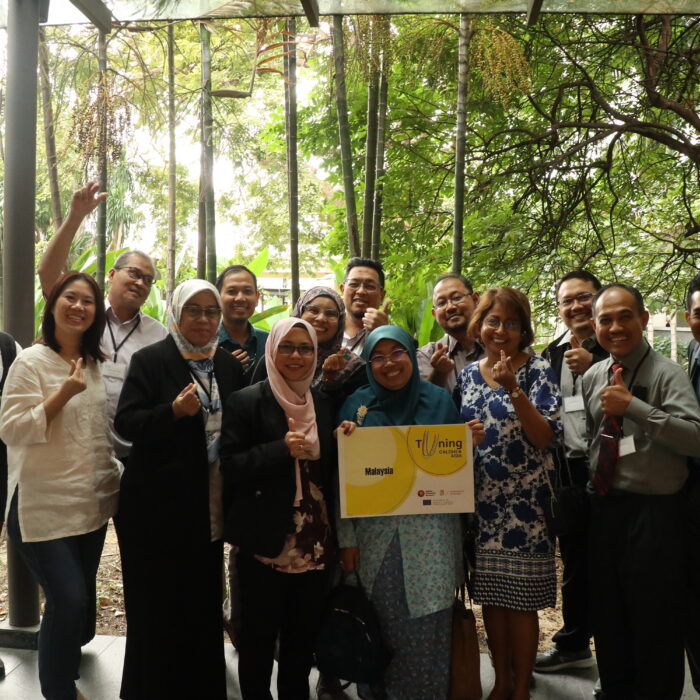

CALOHEA will support partner institutions to build vertically and
horizontally integrated teams that will act as “Champions of
Recognition and Internationalization”, working closely with
university authorities to drive the project goals. Uniting the
partners and building human capital and capacity focused on
the 3 Key Recognition Mechanisms, CALOHEA enables Higher
Education institutions to make necessary progress towards
improving internationalization processes.
CALOHEA will support partner institutions to build vertically and horizontally integrated teams that will act as “Champions of Recognition and Internationalization”, working closely with university authorities to drive the project goals. Uniting the partners and building human capital and capacity focused on the 3 Key Recognition Mechanisms, CALOHEA enables Higher Education institutions to make necessary progress towards
improving internationalization processes.
The need for regional subject specific qualifications and
assessment reference frameworks (QARFs) have been
highlighted by the partners in the project, as well as the available
literature. Improvement is required around reconciling QARFs
with national regulations and regional implications. By setting
these as Recognition Mechanism 1, CALOHEA plans to engage
the stakeholders in various stages from design to
implementation.
The need for regional subject specific qualifications and assessment reference frameworks (QARFs) have been highlighted by the partners in the project, as well as the available literature. Improvement is required around reconciling QARFs with national regulations and regional implications. By setting
these as Recognition Mechanism 1, CALOHEA plans to engage the stakeholders in various stages from design to implementation.
3 lines of work
The project activities are structured around three Lines of Work, each associated with one of the 3 Key Recognition Mechanisms.
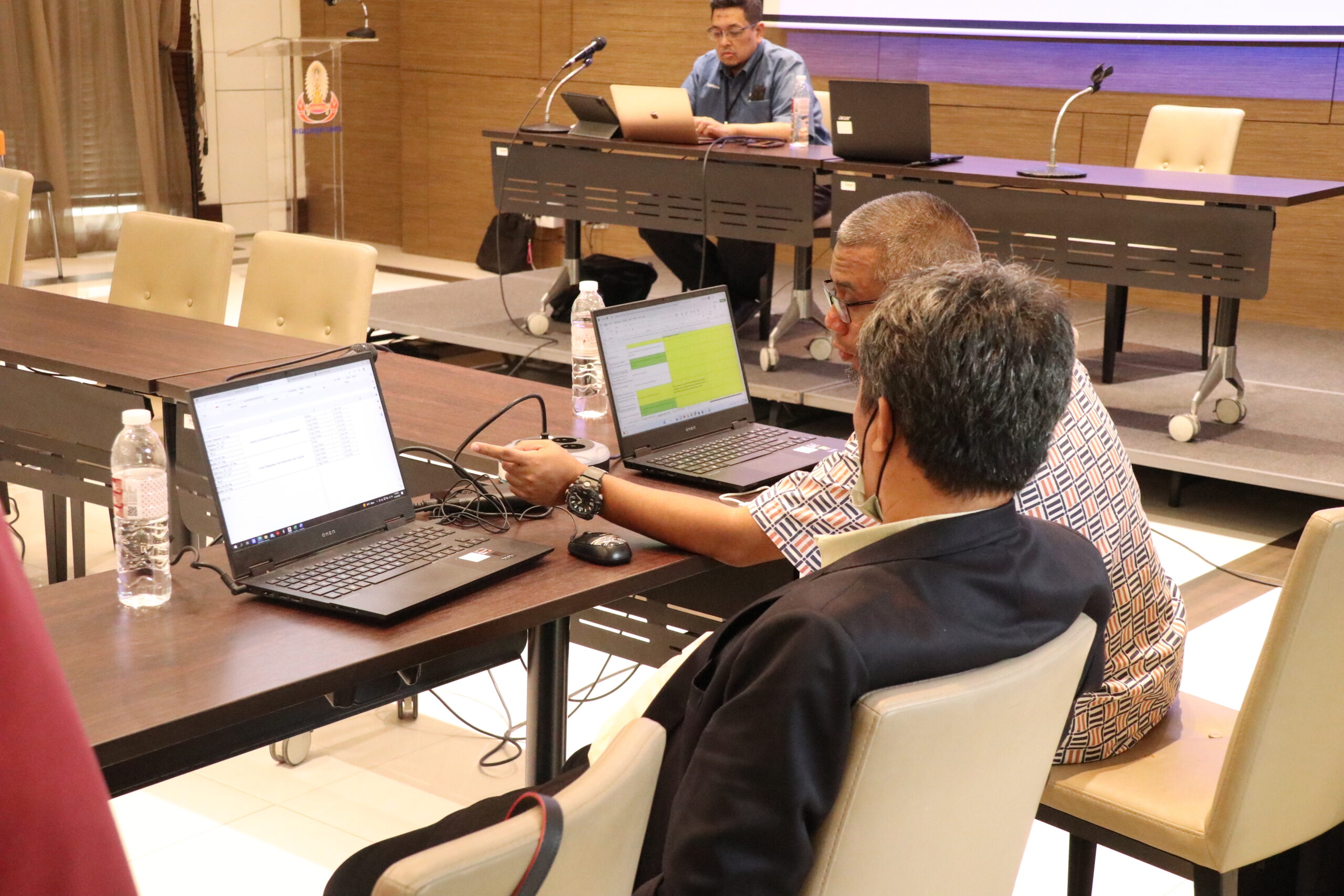

line 1
Regional Subject-Specific Qualifications
& Assessment Reference Frameworks
- Revision of Meta-Profiles
- Development of Region-wide subject-specific qualifications frameworks
- Comparison of desired graduate profiles with the help of the CALOHEA Reference Frameworks
- Comparison of desired graduate profiles with the help of the CALOHEA Reference Frameworks
line 2
Student Workload Measurement
- Elaboration of contextualised student workload measurement tools for the region
- Consultations on Student Workload and analysis of the results
- Guidelines for bridging South East Asian Student Workload with other contexts
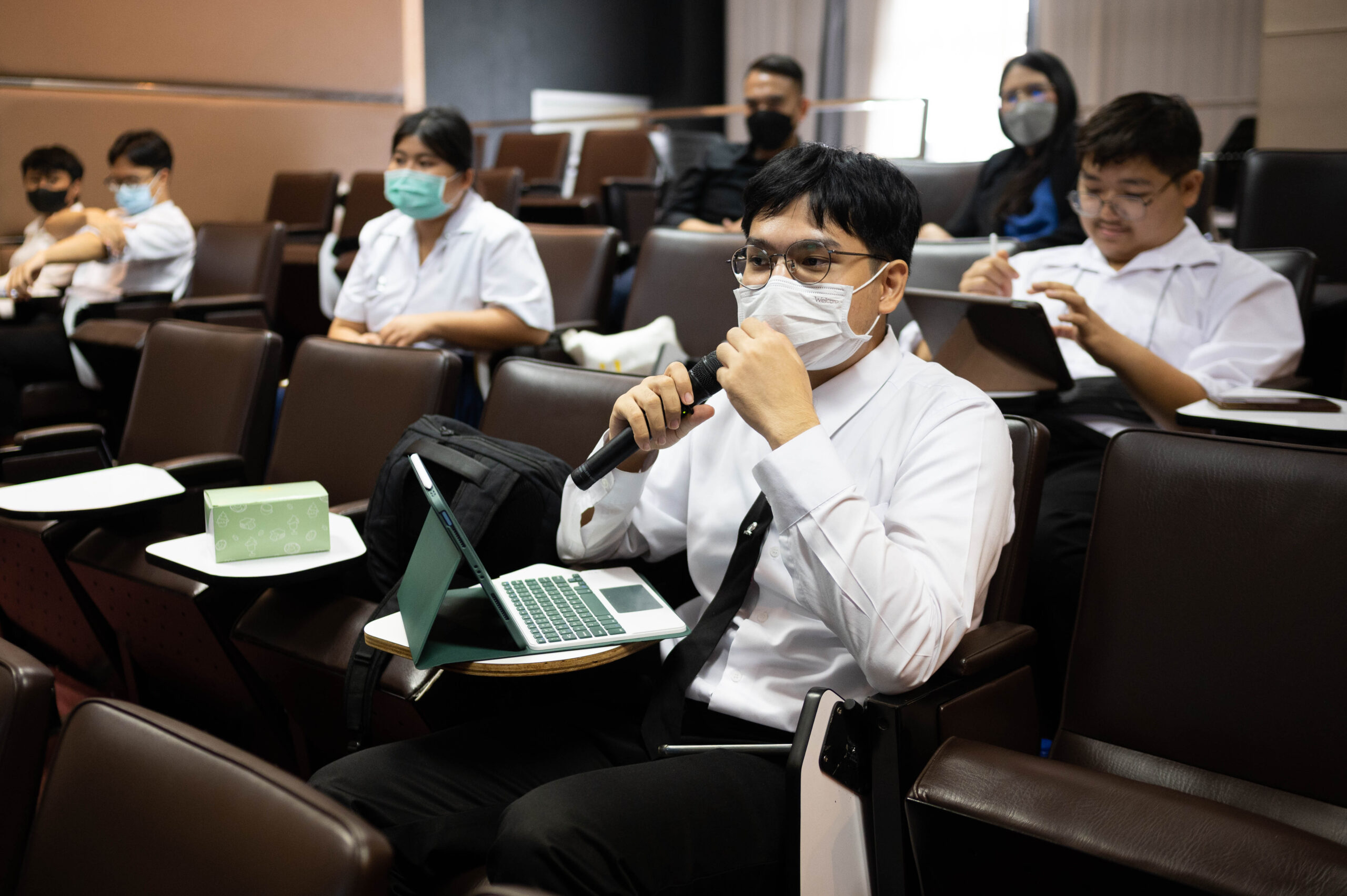

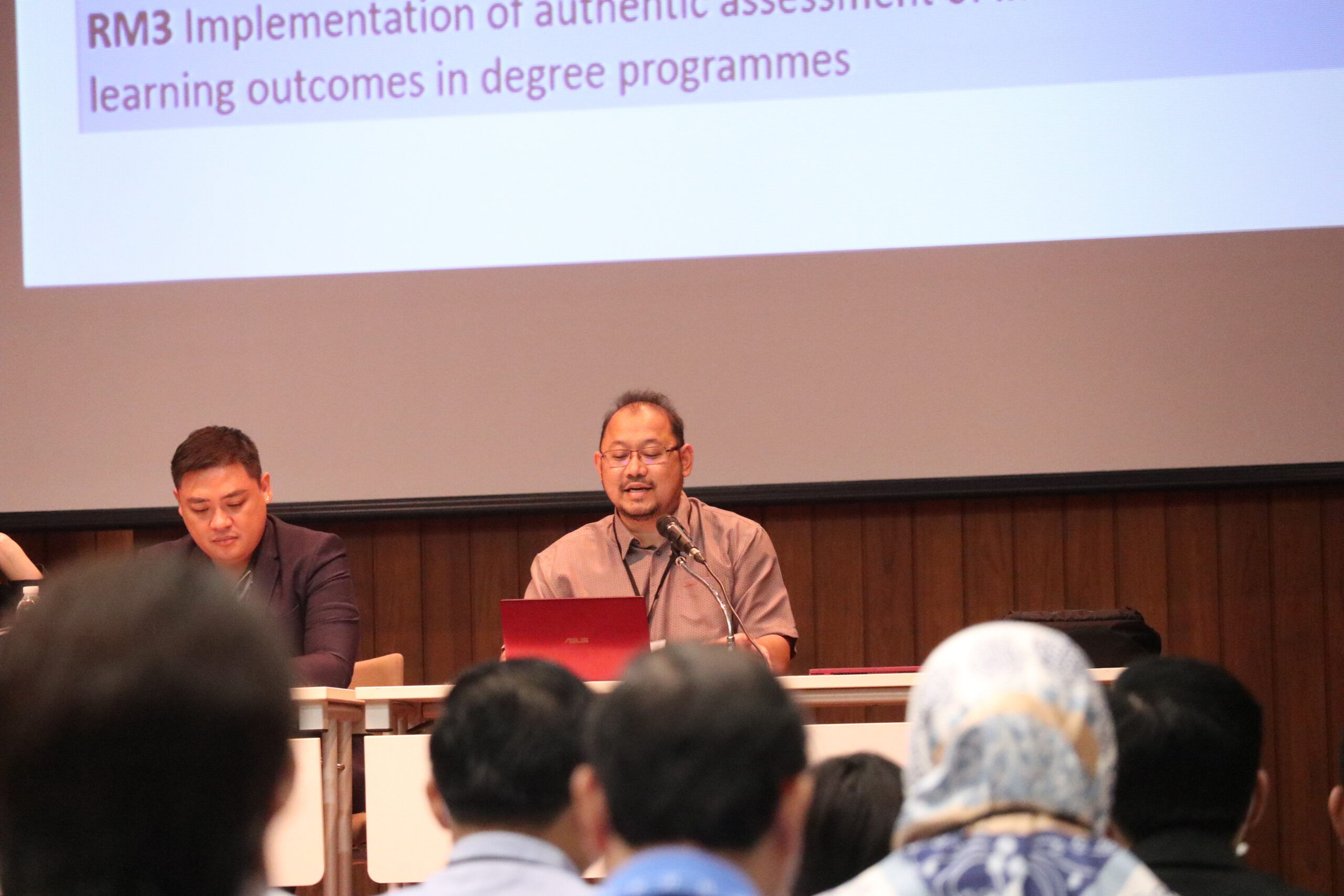

line 3
Authentic Assessment of Programme
Learning Outcomes
- Diagnostic of current assessment practices of learning outcomes
- Development of Action plans to move towards full implementation of authentic assessment of programme learning outcomes
- Creating compilations of Inspirational examples of authentic assessment of programme learning outcomes
Expected Beneficiaries
This project targets multiple stakeholders and benefits not only those directly involved, but also those at institutional, national and regional levels with a global impact. CALOHEA activities benefit students, faculty, non-academic staff and Higher Education Institutions.
STUDENTS WILL BENEFIT FROM:
- Recognition of study periods and whole degrees;
- Their workload being fully accounted for;
- The Authentic Assessment, helping them achieve the desired programme learning outcomes
FACULTY WILL BENEFIT FROM:
- Clear, internationally valid Subject-Specific Reference Qualification & Assessment Frameworks to guide them.
- Tools to measure Student Workload and, thus, make their courses internationally recognizable.
- Training & inspirational examples to implement Authentic Assessment.
THE SEA REGION WILL BENEFIT FROM:
- Having a clear and detailed agreement across the different ASEAN countries about what is expected of a graduate in CALOHEA Subject Areas, through the Subject-Specific Reference Qualifications & Assessment Frameworks.
- A shared toolkit of approaches for measuring the full student workload and a common understanding of how to best include student workload estimations in degree programme planning, in order to foster international recognition of study periods and programmes.
- Use of authentic assessment of learning outcomes in order to demonstrate that students indeed achieve the internationally comparable learning outcomes in degree programmes.
- A strong network of ASEAN Internationalization and Recognition Champions, who can foster a cross-national approach to internationalization to improve inter-regional and global relevance and partnerships.
HIGHER EDUCATION INSTITUTIONS WILL BENEFIT FROM:
- Mechanisms to involve different actors in institution-wide internationalization efforts, with the focus on the use of the 3 Recognition Mechanisms.
- Teams of academics and non-academic staff trained in the use of the 3 Recognition Mechanisms who will act as Champions of Internationalization and Recognition.
- Training sessions to introduce more staff to the use of the 3 Recognition Mechanisms and involve them in Internationalization and Recognition efforts.
- Gaining the sense that they are part of a larger network of SEA HEIs, all of whom are working together towards Internationalization through creation and adoption of the 3 Recognition Mechanisms, with the full support of the AUN.
- Improved support, capacity building and possibilities to unite their efforts.
NON-ACADEMIC STAFF OF HEIS WILL BENEFIT FROM:
- Clear and transparent, internationally valid Subject-Specific Reference Qualifications & Assessment Frameworks to focus their internationalization and recognition efforts most effectively.
- Training, tools and a joint regional system of measuring student workload that will permit coordinated institutional efforts to ensure recognition of study periods and degree programmes.
- Training to support the implementation of programme learning outcomes Authentic Assessment and record it in different administrative systems.
Project Results
Line 1: Creation and Use of Regional Subject-Specific Qualifications and Assessment Reference Frameworks to Permit Greater Comparability of Institutional Degree Programme Profiles
Line 1 of work focused on the development and validation of Regional Subject-Specific Qualifications and Assessment Reference Frameworks for (1) Civil Engineering, (2) Medicine and (3) Teacher Education.
These Frameworks are the first Recognition Mechanism created by the CALOHEA project in order to facilitate recognition of degrees and periods of studies both within the ASEAN region and between the ASEAN region and other world regions.
- Programmes in the Subject Area of Civil Engineering
- CALOHEA Qualifications & Assessment Reference Frameworks for ASEAN Higher Education Programmes in the Subject Area of Civil Engineering – Explanatory Document (Download)
- CALOHEA Qualifications Reference Framework for ASEAN Higher Education Programmes in the Subject Area of Civil Engineering (Download)
- CALOHEA Assessment Reference Framework for ASEAN Higher Education Programmes in the Subject Area of Civil Engineering (Download)
- Programmes in the Subject Area of Medicine
- CALOHEA Qualifications & Assessment Reference Framework for ASEAN Higher Education Programmes in the Subject Area of Medicine – Explanatory Document (Download)
- CALOHEA Qualifications Reference Framework for ASEAN Higher Education Programmes in the Subject Area of Medicine (Download)
- CALOHEA Assessment Reference Framework for ASEAN Higher Education Programmes in the Subject Area of Medicine (Download)
- Programmes in the Subject Area of Teacher Education
- CALOHEA Qualifications & Assessment Reference Framework for ASEAN Higher Education Programmes in the Subject Area of Teacher Education – Explanatory Document (Download)
- CALOHEA Qualifications Reference Framework for ASEAN Higher Education Programmes in the Subject Area of Teacher Education (Download)
- CALOHEA Assessment Reference Framework for ASEAN Higher Education Programmes in the Subject Area of Teacher Education (Download)
Line 2: Instalment of the Culture of Student Workload Measurement as an Integral Part of Curriculum Design
Line 2 of work focused on engaging different stakeholders in estimating and discussing student workload associated with different programme components, with the bigger aims of
- Improving recognition and quality of higher education programmes and courses based on the analysis of the data collected through different tools for measuring student workload and
- Contributing to an ASEAN-level discussion in order to promote the use of student workload as a basis for a more coherent regional recognition system
At programme and institutional level, the results sought and achieved consist in changing mindsets of key stakeholders, changing course & curriculum design and implementation practices and changing institutional policies to firmly include student workload monitoring into day-to-day practice.
At the level of the project, the lessons learned have been summarised in the “Guidelines for bridging South East Asian Student Workload with other contexts” document that includes recommendations at country and subject-area level about the necessary steps and best practices for the Instalment of the Culture of Student Workload Measurement as an Integral Part of Curriculum Design and Internationalisation and Recognition efforts.
You can download the “Guidelines for bridging South East Asian Student Workload with other contexts” document here.
Line 3: Implementation of Authentic Assessment of Internationally Comparable Learning Outcomes in Degree Programmes
Line 3 of work focused on the implementation of Authentic Assessment for learning outcomes in the three subject areas of (1) Civil Engineering, (2) Medicine and (3) Teacher Education.
Every CALOHEA Team has developed and implemented an Action Plan to move towards full implementation of authentic assessment of programme learning outcomes. Examples of authentic assessment tasks and ways to encourage faculty members to embrace authentic assessment have been shared within and beyond the project consortium during the project general and national capacity building events.
Each Subject Area Group has also created a compilation of Inspirational examples of authentic assessment of programme learning outcomes:
- Inspirational examples of authentic assessment of programme learning outcomes in CIVIL ENGINEERING (Download)
- Inspirational examples of authentic assessment of programme learning outcomes in MEDICINE (Download)
- Inspirational examples of authentic assessment of programme learning outcomes in TEACHER EDUCATION (Download)



